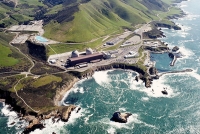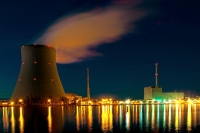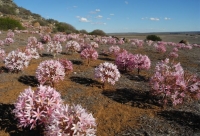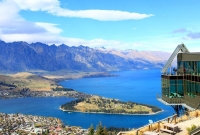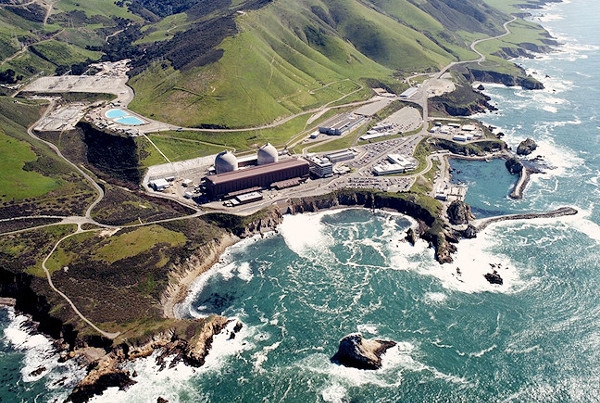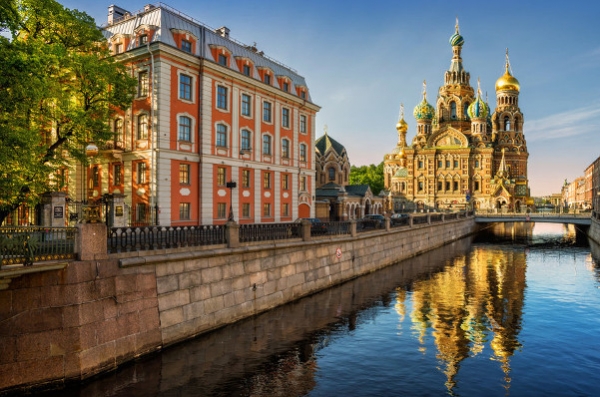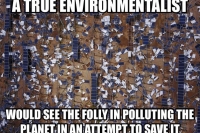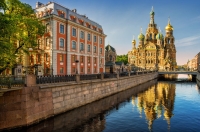Michael Shellenberger, Founder - President of Environmental Progress: The question is not how humans can gain absolute mastery, since that’s impossible, but rather which machines, on balance, deliver the most good with the least harm. On that metric, nuclear power has always been, inherently, the safest way to power civilization. Michael Shellenberger is an excellent advocate for nuclear power, for improving life for people around the world and for protecting the environment and nature in general. This is an excellent article for people around the world.
Andrew Kenny, physicist and mechanical engineer: The time is right for new nuclear power in South Africa. We have already proven ourselves with Koeberg, which works in harmony with nature and which has been delivering clean, safe, cheap reliable electricity for 34 years. But we must study, very carefully, the successes and failures of recent nuclear construction around the world before we begin.
Kelvin Kemm is a nuclear physicist and Chairman of the South African Nuclear Energy Corporation and Nuclear Africa (Pty) Ltd: South Africa has had very successful nuclear energy and radioisotope production programs for more than 30 years. They have expertise in all aspects of licensing, operating and managing these facilities. The country is helping other African countries get ready for nuclear power and nuclear medicine. The United States and France may not be available to help with the next generation of nuclear plants. So they will probably have to look elsewhere for nuclear plant design and construction. South Africa is a leading example of what other countries will have to do to have nuclear power.
Eric Jelinski, past president of Environmentalists for Nuclear - Canada, farmer, environmentalist, university lecturer with degrees in mechanical, chemical and nuclear engineering: The question is really not, “Who can build nuclear?” but, “What does it take to build a nuclear plant,” and “How to build nuclear keeping within the capability of your country?” Here is a summary for pressure tube heavy water reactors, PTHW, developed in Canada and appropriate for other countries similar to Canada in the 1970s../p>
Kelvin Kemm is a nuclear physicist and Chairman of the South African Nuclear Energy Corporation and Nuclear Africa (Pty) Ltd: This is a broad brush picture of the nuclear power situation here. South Africa is the only country in Africa which has a nuclear power station. It is ‘Koeberg’ and it is situated close to Cape Town. It has been running for over 30 years and is recognised as one of the best run nuclear power stations in the world. A number of previous Koeberg senior managers and staff (about 80) are currently at the Baraka nuclear plant in the UAE, in significant positions, bringing that nuclear power station online.
Wade Allison, Emeritus Professor of Physics, Keble College, Oxford University, UK: This article discusses the importance of plentiful, reliable energy for humanity. It includes the topic of carbon dioxide from fossil fuels reportedly going to cause serious climate change problems. This leads to recommendations to dramatically cut back on fossil fuels and quickly switch to nuclear. Several things may stand in the way: 1) Nature. It may remain the primary cause of climate change. Any energy source we select may have little influence on future climate change. If it gets colder, we will need lots of energy from fossil fuels and nuclear. 2) The world will not be ready for a long time to implement nuclear like Canada, France and the USA did. Bad government, corruption, egotism, weak economies, inferior education will stand in the way. 3) When planning globally, it is essential to have global solutions that work.
Vagisha Nidhi, Lecturer, Department of Nuclear Science & Technology, Mody University of Science & Technology, India: This PowerPoint Presentation is for education about things related to nuclear energy, nuclear medicine and nuclear science in India.
Keith Matheny, writer for the Detroit Free Press: Again, the Detroit Free Press is out to spread inaccurate fearmongering about nuclear power and used fuel. The city of Detroit is an economic and urban disgrace to the United States. Few businesses want to locate there. Many of the children living there receive marginal education. After World War II cities in Asia and Europe rebuilt to very high standards and got strong economies going. The United States has let Detroit fester with many abandoned industrial, commercial and residential buildings for more than half a century. Nuclear waste is among some of the easiest waste to secure, manage and store, in part because of its compact nature. Nuclear waste management would bring revenue, jobs and education opportunities to areas that are now a wasteland. The economic benefits would last centuries.
Michael Shellenberger, Founder - President of Environmental Progress: Humanity stagnated for thousands of years plundering the environment and using slave power. Along came fossil fuels and did away with most of that suffering. See Vaclav Smil - ENERGY AND CIVILIZATION A HISTORY. Then along came extreme environmentalists in the 1960s and countries supporting them determined to make North America, Europe, Japan and South Africa energy poor in order to rule over them. Now comes an excellent advocate for humanity and the environment, Michael Shellenberger. See the video of his TED talk about nuclear and the environment.
Global Data Energy: Nuclear technology is a major base-load power-generating source and accounted for 10.5% of global power generation in 2017. Countries with significant nuclear power capacity are the US, France, Japan, China, Russia, South Korea, Canada, and Ukraine, with more than ten gigawatts (GW) installed capacity each. Germany, the UK, Sweden, India, Spain, Belgium, and Taiwan have five to ten GW installed nuclear power capacity each.


